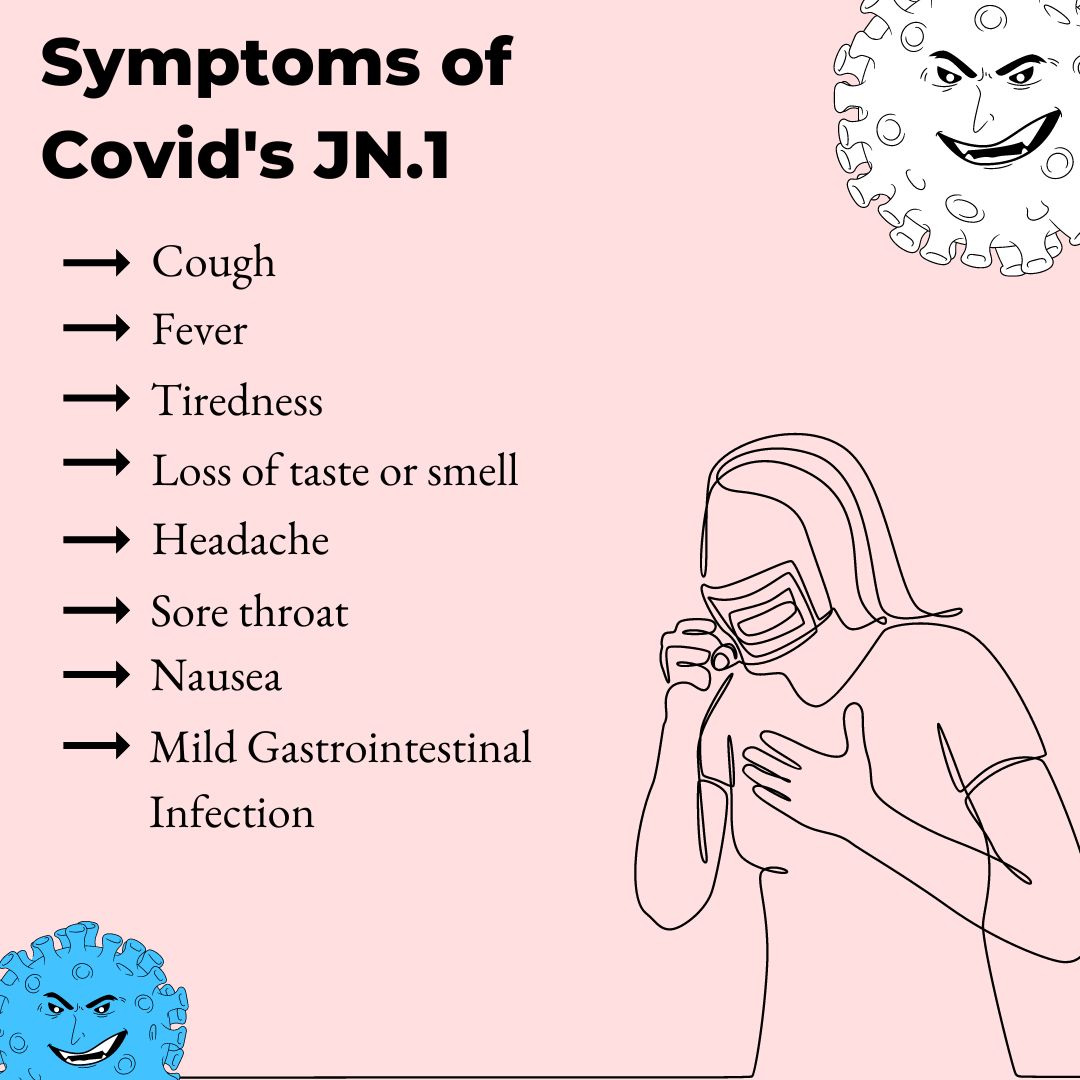Understanding The JN.1 Coronavirus Variant: Symptoms, Risks, And What You Need To Know

Table of Contents
Identifying the JN.1 Variant: Origins and Spread
While precise origins remain under investigation, understanding the JN.1 variant's spread is crucial for effective containment strategies. Preliminary data suggests [Insert information regarding the geographic location of initial detection if available. Otherwise, state that information is still being gathered]. The rate of spread compared to other variants is [Insert information on rate of spread compared to other variants, if available; otherwise, state that it's currently under investigation].
- Geographic location of initial detection: [Insert information if available; otherwise, state "Currently under investigation."]
- Rate of spread compared to other variants: [Insert information if available; otherwise, state "Data is still being collected and analyzed."]
- Known mutations and their potential impact on transmissibility, severity, and vaccine efficacy: [Insert information on any known mutations and their potential impact. If no information is available, state that research is ongoing to determine the impact of mutations.]
- Any known links to specific populations or demographics: [Insert information if available; otherwise, state "Further research is needed to determine if any specific populations are disproportionately affected."]
Symptoms of the JN.1 Variant: Recognizing the Infection
Early detection is key to effective management of any COVID-19 infection. While research into the JN.1 variant is ongoing, it's crucial to be aware of potential symptoms. Currently, the symptoms of the JN.1 variant appear [similar/different – choose one based on available information] to those of previous variants.
- Common symptoms: Fever, cough, fatigue, shortness of breath, loss of taste or smell, sore throat, headache, muscle aches, chills, nausea or vomiting, diarrhea.
- Less common symptoms: Skin rashes, conjunctivitis (pink eye).
- Symptoms specific to the JN.1 variant (if any are known): [Insert information if available; otherwise, state "Currently, no specific symptoms have been definitively linked to the JN.1 variant."]
- Distinguishing JN.1 symptoms from other illnesses: It's important to note that these symptoms are common to various illnesses. If you experience any of these, seek medical advice for proper diagnosis and treatment.
Severity and Risks Associated with JN.1
Understanding the severity of the JN.1 variant is vital for implementing appropriate public health measures. [Insert data on hospitalization rates, mortality rates, and long COVID risks if available. If no specific data is available, state that research is ongoing to assess these risks and compare them to previous variants].
- Hospitalization rates for JN.1 infections: [Insert data if available; otherwise, state "Data is currently being collected."]
- Mortality rate compared to other variants: [Insert data if available; otherwise, state "Further research is needed to determine the mortality rate associated with the JN.1 variant."]
- Increased risk for specific populations (elderly, immunocompromised): As with previous variants, individuals who are elderly or immunocompromised may be at higher risk of severe illness.
- Potential for long COVID complications: The potential for long COVID complications with the JN.1 variant is currently [Insert information if available; otherwise, state "under investigation."]
Prevention and Protection Against JN.1: Staying Safe
Protecting yourself and others from the JN.1 variant relies on a multi-faceted approach, emphasizing preventative measures and public health strategies.
- Vaccination and booster shots: Vaccination remains one of the most effective tools in reducing the severity of COVID-19 illness. Stay up-to-date with booster shots as recommended by health authorities.
- Wearing masks in public indoor spaces: Wearing masks in public indoor settings can significantly reduce the transmission of respiratory viruses.
- Maintaining social distancing: Maintaining a safe distance from others, especially in crowded areas, can help limit exposure.
- Practicing good hygiene (handwashing, sanitizing): Regular handwashing and sanitizing can significantly reduce the risk of infection.
- Testing and isolation protocols: If you feel unwell, get tested and follow isolation protocols to prevent further spread.
Treatment Options for JN.1 Infection: Managing the Illness
Treatment for JN.1 infection generally mirrors the approach used for other COVID-19 variants. The focus remains on supportive care and, in severe cases, antiviral medications.
- Antiviral medications: Antiviral medications may be prescribed in certain cases to help reduce the severity and duration of illness.
- Supportive care (rest, fluids, pain relief): Rest, hydration, and over-the-counter pain relievers can help manage symptoms.
- Monitoring for severe complications: Close monitoring for severe complications, such as pneumonia or respiratory distress, is crucial.
- When to seek medical attention: Seek immediate medical attention if you experience shortness of breath, chest pain, or other severe symptoms.
Conclusion
The JN.1 coronavirus variant, like other emerging variants, highlights the ongoing need for vigilance and proactive measures. Understanding its potential symptoms, risks, and preventive strategies is crucial for protecting your health and the health of your community. While research continues to refine our understanding of JN.1, the importance of vaccination, boosters, and adherence to public health guidelines remains paramount. Staying informed about the JN.1 variant and other emerging COVID-19 variants is crucial. Protect yourself from the JN.1 variant by staying up-to-date on the latest recommendations from reputable sources like the [Insert relevant health organizations, e.g., CDC, WHO]. Learn more about the JN.1 coronavirus variant and take steps to protect yourself and your loved ones today.

Featured Posts
-
 River Thames Rescue Police Search For Missing Child 11
May 31, 2025
River Thames Rescue Police Search For Missing Child 11
May 31, 2025 -
 Bmw Open 2025 Quarter Finals Zverev Vs Griekspoor Dominate Munich
May 31, 2025
Bmw Open 2025 Quarter Finals Zverev Vs Griekspoor Dominate Munich
May 31, 2025 -
 8 Crepes Salados Opciones Para Una Merienda O Cena Exquisita
May 31, 2025
8 Crepes Salados Opciones Para Una Merienda O Cena Exquisita
May 31, 2025 -
 Munguias Doping Allegations A Denial Following Adverse Test
May 31, 2025
Munguias Doping Allegations A Denial Following Adverse Test
May 31, 2025 -
 Historic Meeting Pope Leo Xiv Greets Giro D Italia Peloton
May 31, 2025
Historic Meeting Pope Leo Xiv Greets Giro D Italia Peloton
May 31, 2025
